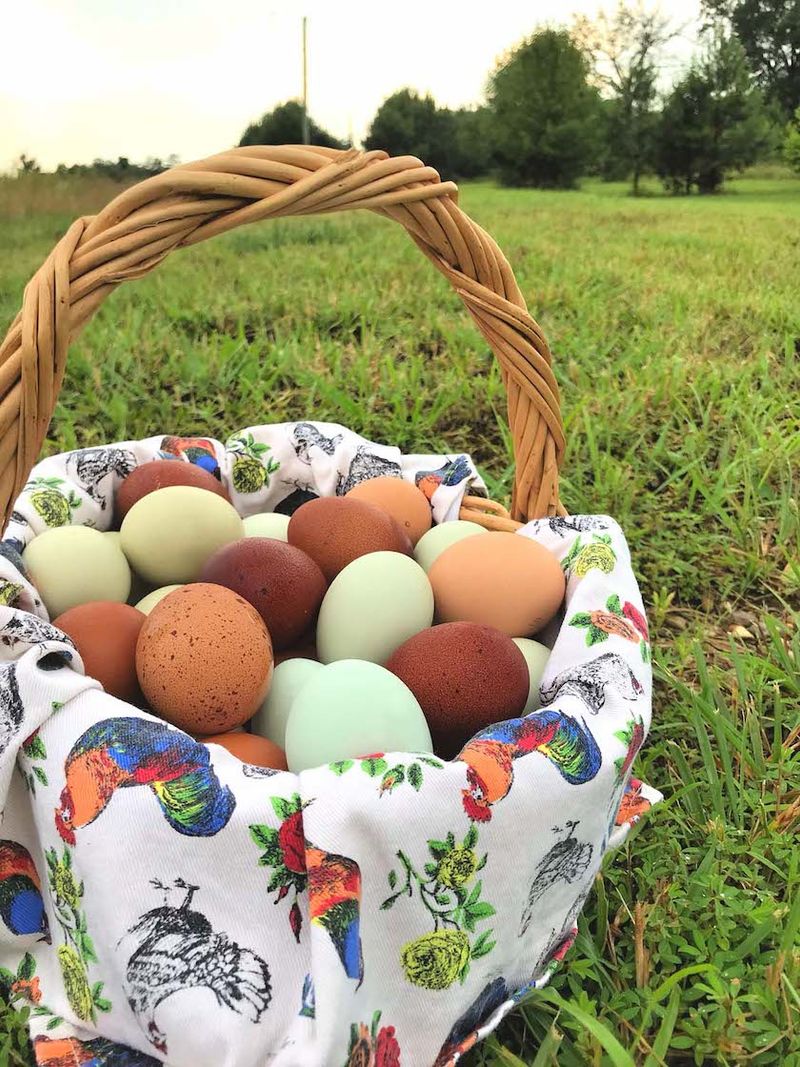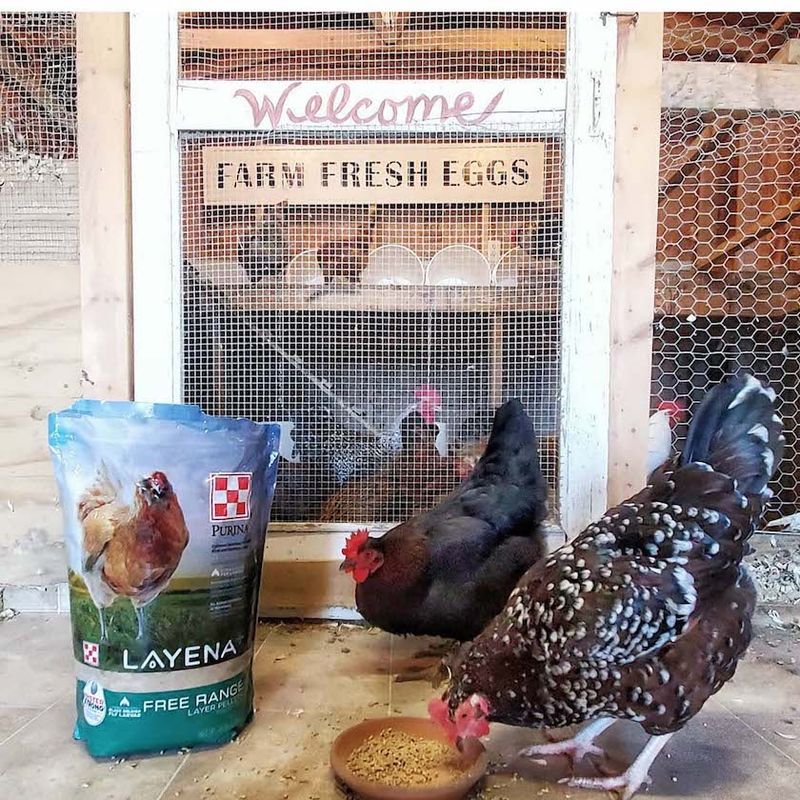One Less Item for the Grocery List


A chicken raiser’s guide to egg production
Exceptional flavor. Undeniable freshness. Rich in nutrients. These are just a few reasons people have flocked to raising farm fresh eggs.

About one million new households have joined the backyard chicken movement since 2020, according to Purina Animal Nutrition. From animal companionship to the simple convenience of having fresh eggs right outside the back door, raising chickens has become more than just a hobby. For many, it’s now the start of a self-sustaining lifestyle.
If you’re considering starting a flock of your own, you may be asking some of these questions: When will my hens lay their eggs? Do I need to collect eggs every day? How long do eggs stay fresh? What can I do with extra eggs?
Here are some answers to commonly asked egg production questions.
Gathering your eggs
Once your hens have laid their eggs, it’s your turn to do the heavy–—or in the case of gathering eggs, light—lifting. But before heading out to the coop, plan how often you’ll check the nesting boxes.
“Under ideal conditions, chickens will lay an egg once every 24 to 26 hours,” says Patrick Biggs, Ph.D. and Purina nutritionist, companion animal technical solutions. “In their first year, you can expect up to 250 eggs from high-producing, well-fed backyard chickens.”
While some hens may lay an egg in the morning, others might wait until afternoon.

Credit: The Beasely Backyard
Because every hen has a different production schedule, collect eggs at least two to three times daily.
If left in the coop for too long, eggs can easily crack, allowing bacteria inside the shell. If your hen finds a broken egg and discovers she likes its taste, she may learn how to crack other eggs.
Feeding a complete layer feed with a balanced supply of calcium can improve shell strength and reduce the risk of egg cracking before it becomes a problem. All Purinapremium layer feeds are infused with their Oyster Strong System to ensure laying hens achieve a balanced supply of calcium through a blend of oyster shell, vitamin D and manganese. These three ingredients work together to help your chickens produce strong-shelled, delicious eggs each day.
Cleaning your eggs
To wash or not to wash—always a question.
When deciding whether to wash your eggs, it all comes down to personal preference and storage availability.
Unwashed eggs have a protective layer called a cuticle. This layer serves as a barrier to bacteria, allowing you to store eggs on the counter for up to two weeks. Once washed, eggs no longer have this cuticle and need refrigerated to avoid contamination.
Whether you choose to wash your eggs or not, refrigeration can help them last up to 45 to 60 days when stored between 32- and 40-degrees Fahrenheit.
Selling your eggs
Have more delicious farm fresh eggs than you can use? Selling your extras to friends and neighbors is a great option.
A key principle to any sales strategy starts with marketing. What makes your eggs stand out from others? Focusing on why people should buy your eggs can help transform your flock into a small business.
Product appearance plays a huge role with egg sales.

Credit: Wild Feather Farm
Selecting certain chicken breeds can influence the color of eggs you might find in the coop. Eggshell color doesn’t change the nutritional value, but a carton of light blue, speckled green, or chocolate brown eggs might catch a buyer’s attention.
“Each chicken breed has specific genes that affect eggshell color,” says Biggs. “Breeds that lay colored eggs include Barred Rock, Rhode Island Red, Welsummer, Maran, and Easter Egger hens. Some breeds lay larger eggs. Decide what types of eggs you want to sell and start bringing home new breeds.”
Looking for another way to increase the value of your eggs? You can enhance the nutritional benefits of your eggs by choosing feeds with added nutrients. For example, choosing a complete layer feed with added omega-3 can help your hens produce eggs with more omega-3 than the average egg. It’s a great selling point for health-conscious buyers.

Credit: Our Barnyard Life
Whether raising eggs for your household or selling to others, your backyard layers will provide you with hours of fun and one less item on the grocery list.
Tags:Poultry Lifestyle

Acreage Life is part of the Catalyst Communications Network publication family.
















